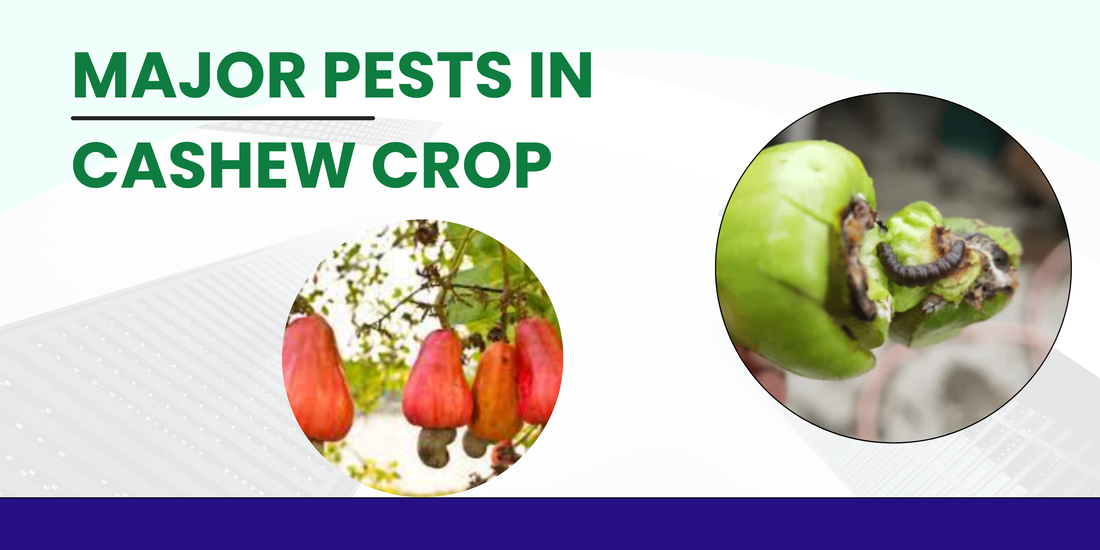
MAJOR PESTS OF CASHEW CROPS
1. Tea Mosquito Bug
Scientific Name: Helopeltis antonii
Damage Symptoms:
-
- Brownish-black necrotic lesions on young shoots, inflorescences, and immature nuts
- Wilting and dieback of shoots
- Premature nut and flower drop
Management:
-
- Spray insecticides like:
- Imidacloprid (0.3 ml/l)
- Thiamethoxam (0.25 g/l)
- Lambda-cyhalothrin (0.5 ml/l)
- Avoid excessive pruning and maintain orchard hygiene
- Use neem oil (3%) as a biopesticide
- Spray insecticides like:
2. Cashew Stem and Root Borer (CSRB)
Scientific Name: Plocaederus ferrugineus
Damage Symptoms:
-
- Yellowing and wilting of leaves
- Holes at the base of the trunk with frass (wood powder)
- Death of entire tree if untreated
Management:
-
- Regular inspection of tree trunks
- Remove and destroy infested trees
- Plug holes with cotton soaked in Chlorpyrifos (0.2%) or Imidacloprid, then seal with mud
- Maintain tree vigor through proper nutrition
3. Cashew Leaf Miner
Scientific Name: Acrocercops syngramma
Damage Symptoms:
-
- Silvery serpentine mines on young leaves
- Leaf curling and drying
Management:
-
- Spray systemic insecticides like Dimethoate (0.05%) or Imidacloprid
- Maintain field sanitation
- Encourage natural predators like parasitic wasps
4. Apple and Nut Borer
Scientific Name: Thylactus spp.
Damage Symptoms:
-
- Boreholes in the apple and nut
- Rotting of apples and premature nut fall
Management:
-
- Collect and destroy fallen nuts and apples
- Spray with insecticides like Chlorpyrifos during fruiting stage
5. Flower Thrips
Scientific Name: Scirtothrips dorsalis
Damage Symptoms:
-
- Flower distortion and discoloration
- Reduced fruit set due to damage to floral parts
Management:
-
- Spray Neem oil (3%) or Spinosad (0.3 ml/l)
- Avoid excessive use of nitrogen fertilizers
6. Mealybugs
Scientific Name: Ferrisia virgata, Phenacoccus spp.
Damage Symptoms:
-
- White cottony masses on tender shoots and nuts
- Stunted growth and black sooty mold due to honeydew
Management:
-
- Spray with systemic insecticides like Imidacloprid or Dimethoate
- Release natural enemies like ladybird beetles
